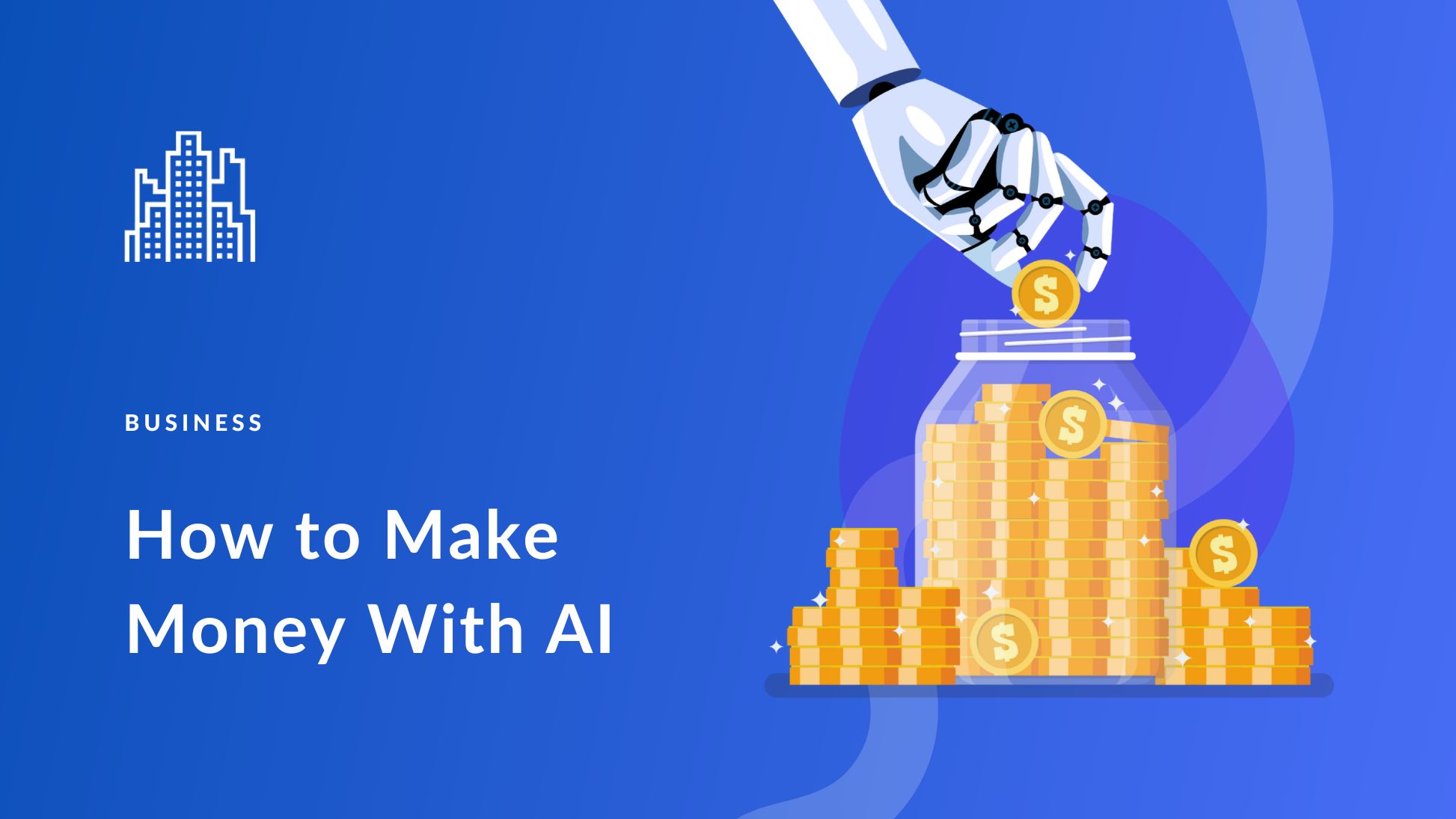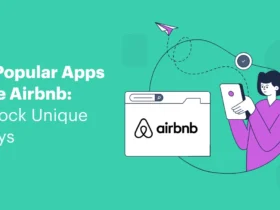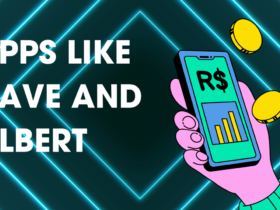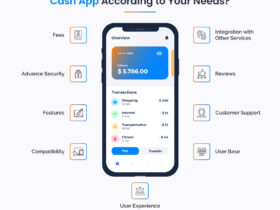Apps make money through various revenue streams such as advertising, sponsorship, freemium models, subscriptions, and crowdfunding. They can display ads, collect user data for analytics, offer in-app purchases, or provide premium features for a fee.
Additionally, apps can generate income through transaction fees, online sales, or sponsorships. Some apps use a combination of these monetization methods to maximize revenue generation. Free apps can also make money through ads, where app developers get paid for ad views, clicks, or program installations.
Freemium models, which offer both free and premium features, are another way for apps to generate income. Ultimately, the amount of money an app can make depends on the specific monetization strategy and the number of active users.
Credit: medium.com
In-app Advertising
In-app advertising is a key revenue source for apps, displaying ads to users for income. Apps make money through strategic ad placements within their interface, monetizing user engagement with sponsored content.
Banner Ads
One popular and effective way for mobile apps to make money is through in-app advertising, specifically through banner ads. Banner ads are rectangular advertisements that appear at the top or bottom of the screen while using an app. These ads can be static or dynamic, and they typically promote products, services, or other apps.
Banner ads are a great source of revenue for app developers because they are easily noticeable by users. They are non-intrusive and do not disrupt the overall user experience. When users interact with the banner ads, such as by clicking on them or downloading the advertised app, app developers earn money.
Here are some key points to keep in mind about banner ads:
- Banner ads are often displayed at the top or bottom of the screen.
- They can be static or dynamic.
- Users can interact with the ads by clicking on them or downloading the advertised app.
- Developers earn money through user interactions with the ads.
Interstitial Ads
Another popular type of in-app advertising is interstitial ads. These are full-screen advertisements that appear at natural breaks in an app’s flow, such as between levels of a game or when transitioning from one screen to another. Interstitial ads usually have a ‘skip’ button that allows users to move on to the next screen without engaging with the ad.
Interstitial ads offer a highly engaging and impactful way for app developers to generate revenue. They grab the user’s attention by occupying the entire screen, increasing the chances of users interacting with the ad. App developers earn money when users engage with the ad by watching a video, downloading an app, or completing a specific action.
Here are some key points to know about interstitial ads:
- Interstitial ads are full-screen advertisements.
- They appear at natural breaks in an app’s flow.
- Users can skip the ad and proceed to the next screen.
- App developers earn money when users engage with the ad.
In-app Purchases
Apps can make money through in-app purchases, where users can buy additional features or content within the app. This monetization model allows app creators to generate revenue by offering value-added options to users.
Iap Overview
In-App Purchases (IAP) are a key revenue stream for app developers. IAP allows users to buy digital goods, upgrades, or features within the app.Freemium Model
The Freemium Model offers free basic features with the option to purchase premium content or functionalities. This model attracts a wide user base while monetizing through in-app purchases. In the Freemium Model, the app is free to download, but users can buy extra features or content within the app. Users can make in-app purchases to enhance their experience or access exclusive content.Subscription Models
Apps have found success in leveraging subscription models to generate revenue. Through subscriptions, apps secure a steady stream of income while providing ongoing value to users. This monetization strategy offers a win-win for both parties, ensuring sustained profitability for app developers.
Subscription models are a popular and effective way for app developers to generate recurring revenue. With a subscription-based app, users are required to pay a recurring fee at regular intervals in order to access premium content or features. This model provides a steady income stream for developers and allows for continuous improvements and updates to the app.
Recurring Revenue
One of the main advantages of a subscription model is the ability to generate recurring revenue. Unlike one-time purchases or in-app advertisements, subscriptions provide a predictable and steady income stream for app developers. This revenue can be reinvested into the app to enhance user experience, develop new features, or expand the app’s reach.
Premium Features
Subscriptions often offer access to premium features or content that is not available to free users. These premium features can range from ad-free browsing to exclusive content or enhanced functionality. By offering a value-added experience, app developers can entice users to subscribe and continue paying for access to these premium features.
Some popular examples of premium features in subscription-based apps include:
- Advanced editing tools in a photo editing app
- Access to a larger database of workout routines in a fitness app
- Exclusive filters or effects in a photo-filtering app
- Offline access to content in a streaming app
- Enhanced customer support or priority access in a productivity app
Hybrid Monetization
Hybrid monetization allows apps to diversify revenue streams through a combination of advertising, in-app purchases, and subscriptions. This approach helps apps make money by catering to various user preferences and behaviors, ultimately maximizing their earning potential.
Hybrid monetization strategies combine various revenue models within a single app to maximize earnings.
Combining Strategies
Combining strategies like ads, in-app purchases, and subscriptions provide diversified income sources.
Maximizing Revenue Streams
Maximizing revenue streams ensures app owners optimize their income potential.
Success Stories
Success stories of apps that have effectively monetized their platforms exemplify the potential of app development as a lucrative business endeavor. From innovative monetization strategies to the utilization of diverse revenue streams, these success stories illuminate the pathways to financial success in the competitive realm of app development. Let’s dive into the top earning apps and examine monetization case studies that have achieved remarkable success in generating revenue.
Top Earning Apps
The mobile app industry has witnessed the rise of several top earning applications that have harnessed diverse monetization models to achieve remarkable financial success. These apps exemplify the potential for substantial revenue generation through strategic monetization approaches.
Monetization Case Studies
Examining successful monetization case studies provides valuable insights into the monetization strategies that have yielded exceptional results for app developers. These case studies offer actionable insights and best practices for aspiring app developers seeking to optimize their revenue streams.
Credit: blog.hootsuite.com
Challenges And Opportunities
When it comes to making money through apps, there are various challenges and opportunities that app developers and businesses encounter. Understanding the market trends, adapting to user behavior, and identifying the most effective monetization strategies are crucial in this competitive landscape.
Market Trends
App monetization follows dynamic market trends. With the increasing demand for mobile apps, new opportunities for revenue generation emerge. Staying updated with the latest trends in the app market helps app developers to capitalize on the potential revenue streams and adapt their strategies accordingly.
Adapting To User Behavior
User behavior constantly evolves, influencing how apps make money. Understanding the user’s preferences, habits, and engagement patterns is essential for tailoring effective monetization approaches. This adaptability is critical in optimizing revenue streams and enhancing user satisfaction.
Ensuring Each Heading Adheres To Html Syntax
- Market Trends
- Adapting to User Behavior

Credit: www.elegantthemes.com
Frequently Asked Questions For How Apps Make Money
How Much Money Can I Make From An App?
It varies, but revenue comes from ads, in-app purchases, subscriptions, and sponsorships. Successful apps can make substantial profits.
How Does Making An App Make Money?
Making an app can make money by displaying ads, offering in-app purchases, and promoting subscriptions. Apps also earn revenue by implementing the freemium model and integrating sponsorships and crowdfunding. Moreover, some apps generate income through hybrid monetization and ads integrated with app content.
Can Free Apps Make Money?
Yes, free apps can make money through ads, in-app purchases, and a freemium model. Users engaging with ads generate revenue.
Do App Owners Get Paid?
App owners can make money through various revenue generation methods such as ads, in-app purchases, subscriptions, and freemium upsell. Combining ads with in-app purchases is often the most profitable strategy. Additionally, transactions fees, online sales, and sponsorships can also contribute to app owners’ earnings.
Conclusion
There are several ways that apps can make money, including advertising, sponsorship, freemium models, subscriptions, and crowdfunding. These monetization strategies allow app owners to generate revenue through various channels such as in-app purchases, banner ads, and user data collection. By adopting these methods, app owners can earn income and maximize their app’s profitability.
So, if you’re looking to create a successful app that generates revenue, consider implementing these monetization strategies to ensure financial success.












Leave a Reply